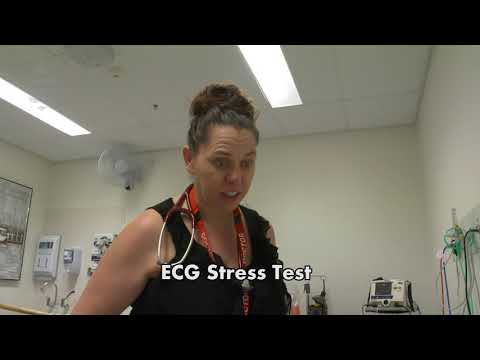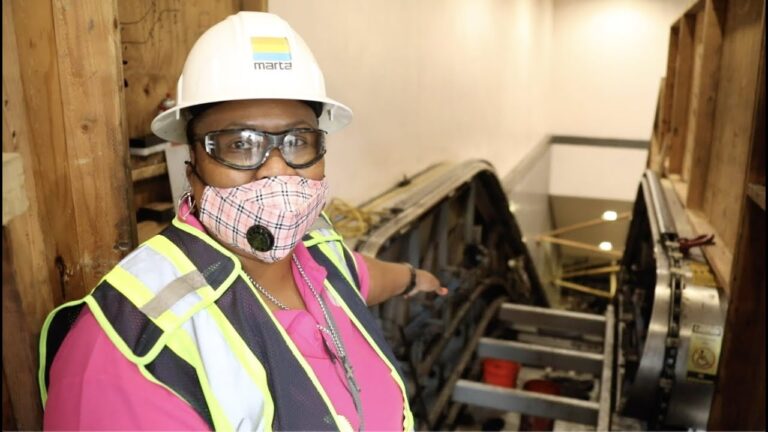Cardiac Scientist: Job Duties & Salary

Cardiac Scientist Job Description Template
Cardiac Scientist Job Description A cardiac scientist, also known as a cardiac physiologist, is a medical professional who specializes in diagnosing and treating heart conditions. They work closely with cardiologists and other healthcare professionals to provide comprehensive care to patients with heart diseases. The primary responsibilities of a cardiac scientist include conducting various non-invasive tests and procedures to assess the functioning of the heart. This may include electrocardiograms (ECGs), echocardiograms, stress tests, and Holter monitoring. They analyze the results and provide accurate and detailed reports to assist in the diagnosis and treatment planning process. Cardiac scientists also play a crucial role in cardiac catheterization procedures, assisting cardiologists during angiograms and other interventional procedures. They monitor patients’ vital signs, administer medications, and ensure the safety and comfort of the patient throughout the procedure. In addition to their clinical duties, cardiac scientists are involved in research and development activities to improve diagnostic techniques and treatment methods for heart diseases. They stay updated with the latest advancements in the field and participate in conferences and workshops to enhance their knowledge and skills. Strong communication and interpersonal skills are essential for a cardiac scientist as they interact with patients, their families, and other healthcare professionals on a daily basis. They must be able to explain complex medical procedures and test results in a clear and understandable manner. Overall, a career as a cardiac scientist requires a high level of technical expertise, attention to detail, and a passion for helping patients with heart conditions. They play a vital role in the healthcare team and contribute to improving the lives of individuals with cardiovascular diseases.Cardiac Scientist Responsibilities
Cardiac Scientist Requirements
How Much Does A Cardiac Scientist Make?
Cardiac Scientist Salary
| Experience Level | Salary Range |
|---|---|
| Entry Level | $60,000 – $80,000 per year |
| Mid-Career | $80,000 – $100,000 per year |
| Experienced | $100,000 – $120,000 per year |
| Senior Level | $120,000 – $150,000 per year |
A Cardiac Scientist is a medical professional specializing in the diagnosis and treatment of heart conditions. They play a crucial role in conducting tests, analyzing data, and assisting cardiologists in providing quality patient care.
The salary of a Cardiac Scientist varies based on their experience level. Entry-level positions usually start at around $60,000 to $80,000 per year. As they gain more experience and expertise, their salary can increase to $80,000 to $100,000 per year for mid-career professionals.
Experienced Cardiac Scientists with several years of experience may earn between $100,000 to $120,000 per year. Those in senior-level positions, with extensive knowledge and leadership roles, can earn higher salaries ranging from $120,000 to $150,000 per year.
It’s important to note that these figures are approximate and can vary based on factors such as geographical location, additional certifications, and the employing institution.
Cardiac Scientist Salaries by Country
Top Paying Countries for Cardiac Scientist
| Country | Average Salary (USD) |
|---|---|
| United States | 100,000 |
| Switzerland | 95,000 |
| Australia | 90,000 |
| Canada | 85,000 |
| Germany | 80,000 |
A cardiac scientist is a highly skilled healthcare professional specializing in the diagnosis and treatment of heart conditions. The salary of a cardiac scientist may vary depending on the country they work in. According to recent data, the top paying countries for cardiac scientists are the United States, Switzerland, Australia, Canada, and Germany. In the United States, the average salary for cardiac scientists is $100,000 per year. Switzerland follows closely with an average salary of $95,000, while Australia offers around $90,000. Canada and Germany also provide competitive salaries, averaging at $85,000 and $80,000 respectively. These salaries reflect the high demand and importance of cardiac scientists in the field of cardiology.
A video on the topic Cardiac Scientist
Video Source : JCU: James Cook University, AustraliaInterview Questions for Cardiac Scientist
1. What does a cardiac scientist do?
A cardiac scientist is a healthcare professional who specializes in the diagnosis and treatment of heart conditions. They perform various diagnostic tests and procedures to assess the functioning of the heart and assist in the management of cardiovascular diseases.
2. What are the main responsibilities of a cardiac scientist?
The main responsibilities of a cardiac scientist include conducting electrocardiograms (ECGs), echocardiograms, stress tests, and cardiac catheterizations. They also analyze and interpret the results of these tests, collaborate with physicians in the development of treatment plans, and educate patients about heart disease prevention and management.
3. What skills are important for a cardiac scientist?
Important skills for a cardiac scientist include a strong understanding of cardiovascular anatomy and physiology, proficiency in operating diagnostic equipment, attention to detail in analyzing test results, effective communication and interpersonal skills, and the ability to work in a fast-paced and high-pressure environment.
4. What qualifications are required to become a cardiac scientist?
To become a cardiac scientist, one typically needs a bachelor’s degree in cardiac physiology or a related field. Some employers may also require certification from a recognized professional organization, such as the American Society of Echocardiography (ASE) or the Society for Cardiological Science and Technology (SCST).
5. Can you explain the process of conducting an echocardiogram?
An echocardiogram is a non-invasive test that uses ultrasound waves to create images of the heart. To conduct an echocardiogram, a cardiac scientist applies gel to the patient’s chest and uses a transducer to capture images of the heart’s structures and measure blood flow. The images are then analyzed and interpreted to assess the heart’s functioning.
6. What are some common heart conditions that a cardiac scientist may encounter?
Some common heart conditions that a cardiac scientist may encounter include coronary artery disease, heart failure, arrhythmias, valvular heart diseases, and congenital heart defects. They may also assist in the diagnosis and management of conditions such as myocardial infarction and cardiomyopathy.
7. How do cardiac scientists contribute to the field of research?
Cardiac scientists play a crucial role in the field of research by participating in clinical trials and studies focused on improving diagnostic techniques and treatment options for heart conditions. They collect and analyze data, collaborate with researchers and physicians, and contribute to the development of evidence-based practices.
8. Can you describe the role of a cardiac scientist in cardiac catheterization?
In cardiac catheterization, a cardiac scientist assists the cardiologist in performing diagnostic and interventional procedures. They prepare the patient, monitor vital signs during the procedure, and operate imaging equipment to visualize the heart and blood vessels. They also help in the measurement of pressures and obtain samples for analysis.
9. How do cardiac scientists contribute to patient education?
Cardiac scientists play an important role in patient education by explaining test procedures, discussing test results, and providing information on heart disease prevention and management. They may educate patients about lifestyle modifications, medication adherence, and the importance of regular follow-up visits with their healthcare providers.
10. How does the role of a cardiac scientist differ from that of a cardiologist?
A cardiac scientist primarily focuses on conducting diagnostic tests and assisting in the management of heart conditions. They work under the supervision of a cardiologist and provide valuable support in the assessment and treatment of patients. In contrast, a cardiologist is a medical doctor who specializes in the diagnosis and treatment of heart diseases and can prescribe medications, perform procedures, and provide comprehensive care to patients.






